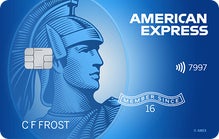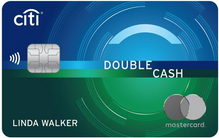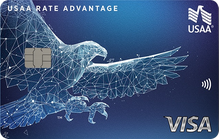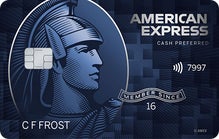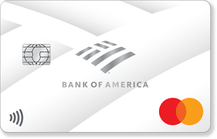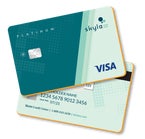Best balance transfer cards of February 2026
Get personal card recommendations
Answer 5 simple questions and get matched with balance transfer credit cards from Bankrate's marketplace.
What's your priority?

Filter by
Showing 14 results
Best for no-frills balance transfers
on Wells Fargo's secure site
See Rates & FeesBalance transfer intro APR
0% intro APR for 21 months from account opening on qualifying balance transfers
Regular APR
17.49%, 23.99%, or 28.24% Variable APR
Rewards rate
N/A
Annual fee
$0
Why you'll like this: It pairs one of the longest intro APR offers on the market with a lower-than-average ongoing interest rate.
What you should know
Card Details
on Chase's secure site
See Rates & FeesBalance transfer intro APR
0% Intro APR on Balance Transfers for 15 months
Regular APR
18.24% - 27.74% Variable
Rewards rate
1.5% - 5%
Annual fee
$0
Why you'll like this: Its exceptionally comprehensive reward categories can be a great tool for everyday spending alongside its intro APR offer.
Reward Details
What you should know
Card Details
Apply with confidence
By applying, you can see if you're approved before impacting your credit
Best for everyday spending
on American Express's secure site
See Rates & Fees, Terms ApplyBalance transfer intro APR
0% on balance transfers for 15 months
APR
19.49%-28.49% Variable
Rewards rate
1% - 3%
Annual fee
$0
Why you'll like this: It gives you a chance to pay off debt while making the most of your everyday purchases.
Reward Details
What you should know
Card Details
Best for excellent credit
Balance transfer intro APR
0% for 21 months on Balance Transfers
Regular APR
16.49% - 27.24% (Variable)
Rewards rate
N/A
Annual fee
$0
Why you'll like this: Its balance transfer intro APR is one of the longest if you want a streamlined card with features that benefit from an excellent credit score.
What you should know
Card Details
on Discover's secure site
See Rates & FeesBalance transfer intro APR
0% intro APR for 18 months
Regular APR
17.49% - 26.49% Variable APR
Rewards rate
1% - 2%
Annual fee
$0
Why you'll like this: It offers great short- and long-term value thanks to its combo of a welcome offer, ongoing rewards and an intro APR.
Reward Details
What you should know
Card Details
Only available in 15 east coast states and D.C.
Best for late payment fee forgiveness
Balance transfer intro APR
Get our best balance transfer offer: 0% introductory APR* on balance transfers for the first 18 billing cycles, for balance transfers made within the first 90 days of account opening. After that, 17.49% - 27.49% variable APR based on your creditworthiness.
Regular APR
17.49%, 19.49%, 22.49%, 25.49% or 27.49% variable APR based on your creditworthiness.
Rewards rate
N/A
Annual fee
None
Why you'll like this: Your first late fee is refunded every 12 billing cycles, so it’s a safer choice if you’re worried about keeping up with payments.
What you should know
Card Details
Best for combining intro APR offers with rewards
on U.S. Bank's secure site
See Rates & FeesBalance transfer intro APR
0% intro on balance transfers for 18 billing cycles
Regular APR
16.99% - 27.99% Variable
Rewards rate
4%
Annual fee
$0
Why you'll like this: It sets a new standard for balance transfer cards, offering cash back rewards while you pay down your debt.
Reward Details
What you should know
Card Details
Best for unlimited cash rewards
on Wells Fargo's secure site
See Rates & FeesBalance transfer intro APR
0% intro APR for 12 months from account opening on qualifying balance transfers
Regular APR
18.49%, 24.49%, or 28.49% Variable APR
Rewards rate
2%
Annual fee
$0
Why you'll like this: This is a well-rounded starter card with a decent intro APR offer, unlimited flat-rate rewards and no annual fee.
Reward Details
What you should know
Card Details
Best for encouraging payments
Balance transfer intro APR
0% intro for 18 months on Balance Transfers
Regular APR
17.49% - 27.49% (Variable)
Rewards rate
2% - 5%
Annual fee
$0
Why you'll like this: It boasts an intro APR on par with several top balance transfer cards, plus it rewards your purchases with 1% when you buy and another 1% when you pay.
Reward Details
What you should know
Card Details
Best for low interest
Balance transfer intro APR
0% intro APR for 15 months on balance transfers, then 10.40% to 24.40% variable regular APR
Regular APR
10.40% to 24.40% variable
Rewards rate
N/A
Annual fee
N/A
Why you'll like this: You have a chance at a lower-than-average ongoing APR, which could help you save on interest even after your intro APR period ends.
What you should know
Card Details
Best for customizable rewards
Balance transfer intro APR
0% Intro APR for 15 billing cycles for any BTs made in the first 60 days. A fee of 3% for 60 days from account opening, then 4% will apply.
Regular APR
17.49% - 27.49% Variable APR on purchases and balance transfers
Rewards rate
1% - 6%
Annual fee
$0
Why you'll like this: With its easy-to-earn bonus, solid intro APR offers and customizable rewards, it offers short- and long-term flexibility and value.
Reward Details
What you should know
Card Details
Apply with confidence
By applying, you can see if you're approved before impacting your credit
Best for groceries
on American Express's secure site
See Rates & Fees, Terms ApplyBalance transfer intro APR
0% on balance transfers for 12 months
APR
19.49%-28.49% Variable
Rewards rate
1% - 6%
Annual fee
$0 intro annual fee for the first year, then $95.
Why you'll like this: You can enjoy a best-in-class rewards rate on groceries as you pay off debt with its intro APR.
Reward Details
What you should know
Card Details
Best for low intro balance transfer fee
Balance transfer intro APR
0% Intro APR for 18 billing cycles for any BTs made in the first 60 days. A fee of 3% for 60 days from account opening, then 4% will apply.
Regular APR
14.49% - 24.49% Variable APR on purchases and balance transfers
Rewards rate
N/A
Annual fee
$0
Why you'll like this: You can enjoy a solid intro APR on both purchases and balance transfers, a low transfer fee and a chance at lower-than-average ongoing APR.
What you should know
Intro offer
N/A
Rewards Rate
N/A
Annual fee
$0
Regular APR
15.15% (Variable)
Why you'll like this: Taking away the balance transfer fee can keep costs low while paying off credit card debt.
What you should know
Remove a card to add another to compare
Remove a card to add another to compare
Compare Bankrate's best balance transfer credit cards
| Our picks for | Ongoing APR | ||
|---|---|---|---|
No-frills balance transfers | 21 months 0% intro APR for 21 months from account opening on qualifying balance transfers | Regular APR: 17.49%, 23.99%, or 28.24% Variable APR | |
Dining | 15 months 0% Intro APR on Balance Transfers for 15 months | Regular APR: 18.24% - 27.74% Variable | |
Apply with confidence Hover to learn more on American Express's secure site See Rates & Fees, Terms Apply | Everyday spending | 15 months 0% on balance transfers for 15 months | Regular APR: 19.49%-28.49% Variable |
Excellent credit | 21 months 0% for 21 months on Balance Transfers | Regular APR: 16.49% - 27.24% (Variable) | |
Welcome offer | 18 months 0% intro APR for 18 months | Regular APR: 17.49% - 26.49% Variable APR | |
Location restriction More information about this important disclosure | Late fee forgiveness | 18 billing cycles Get our best balance transfer offer: 0% introductory APR* on balance transfers for the first 18 billing cycles, for balance transfers made within the first 90 days of account opening. After that, 17.49% - 27.49% variable APR based on your creditworthiness. | Regular APR: 17.49%, 19.49%, 22.49%, 25.49% or 27.49% variable APR based on your creditworthiness. |
Long balance transfer intro APR | 18 billing cycles 0% intro on balance transfers for 18 billing cycles | Regular APR: 16.99% - 27.99% Variable | |
Flat-rate cash rewards | 12 months 0% intro APR for 12 months from account opening on qualifying balance transfers | Regular APR: 18.49%, 24.49%, or 28.49% Variable APR | |
Encouraging payments | 18 months 0% intro for 18 months on Balance Transfers | Regular APR: 17.49% - 27.49% (Variable) | |
Low interest | 15 months 0% intro APR for 15 months on balance transfers, then 10.40% to 24.40% variable regular APR | Regular APR: 10.40% to 24.40% variable | |
Apply now on Bank of America's secure site | Customizable rewards | 15 billing cycles 0% Intro APR for 15 billing cycles for any BTs made in the first 60 days. A fee of 3% for 60 days from account opening, then 4% will apply. | Regular APR: 17.49% - 27.49% Variable APR on purchases and balance transfers |
Apply with confidence Hover to learn more on American Express's secure site See Rates & Fees, Terms Apply | Groceries | 12 months 0% on balance transfers for 12 months | Regular APR: 19.49%-28.49% Variable |
*Hover to learn more | Low intro balance transfer fee | 18 billing cycles 0% Intro APR for 18 billing cycles for any BTs made in the first 60 days. A fee of 3% for 60 days from account opening, then 4% will apply. | Regular APR: 14.49% - 24.49% Variable APR on purchases and balance transfers |
*Hover to learn more | No balance transfer fee | 12 months Introductory Rate of 0% APR on balance transfers for 12 months | Regular APR: 15.15% (Variable) |


